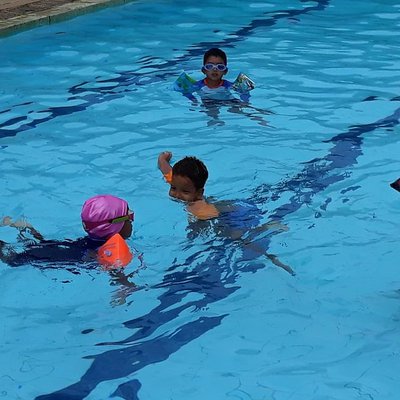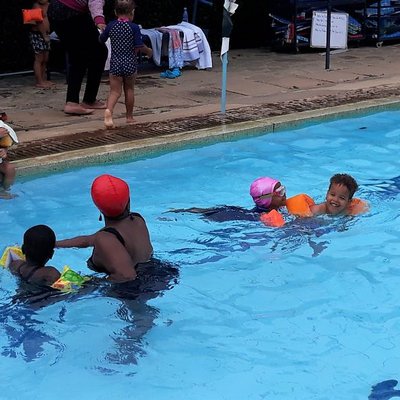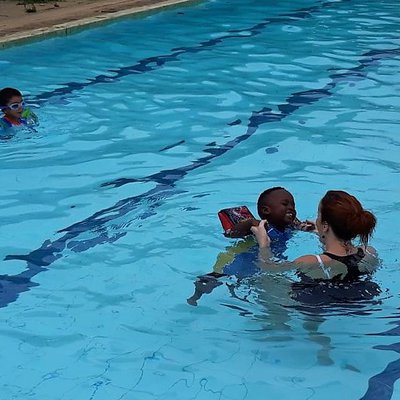Little Water Babies in the making!
11th January 2018
Term 2 is an exciting term for our children in FS1 as they begin their weekly trips to our Kisongo campus for specialist Music and Swimming lessons. They thoroughly enjoyed their first visit, with many of them already looking very happy and comfortable in the water. Well done, FS1!

While it’s never too late to learn how to swim, there are great benefits that can be realised when learning at an early age.
1. It is essential to your child's safety.
A study by Dr. Ruth Brenner of the Eunice Kennedy Shriver National Institute of Child Health and Human Development found that swimming lessons may help to reduce the risk of drowning by as much as 88%. Certain swim programs are designed to teach children self-rescue skills such as floating on their back until help comes.
2. Infants tend to be comfortable with water versus older children

As toddlers’ brains are developing, they absorb information quickly and will have an easier time adapting to water. Familiarising very young children with water reduces the chance that they will fear it when they are older, or be affected by negative attitudes towards swimming.
3. Swimming encourages earlier physical development
It is possible for an infant to learn to swim before they can walk. As a low-impact sport, this means that toddlers can be active at an early age and develop coordination skills earlier. A study from the Norwegian University of Science and Technology found that babies who learn to swim have better abilities to balance and grasp objects than their non-swimming peers. This may be because swimming allows infants to use their muscles more than they do on land. While toddlers do not have the motor skills to properly perform strokes, swimming lessons will teach them to move and float independently in the water.
4. Swimming allows children to develop their social skills
During swimming lessons, children are frequently interacting with others. They learn to follow directions from their instructor, play and share with other children, and listen to their parents. According to the German Sports College Cologne, young swimmers are less shy, more independent, and more comfortable in social situations than non-swimmers.
5. Swimming helps develop psychological benefits

Most children are born with a love of water and find it stimulating to their senses. In addition, children who swim have greater self-discipline, as they learn to respect the rules of the water and those around them. Children also gain more self-confidence with every technique they learn, further encouraging them to learn. This builds a good foundation for skills that go well beyond swimming.
Swimming is often said to be one of the most important life skills and the earlier a child learns to swim, the earlier they can reap the benefits.






